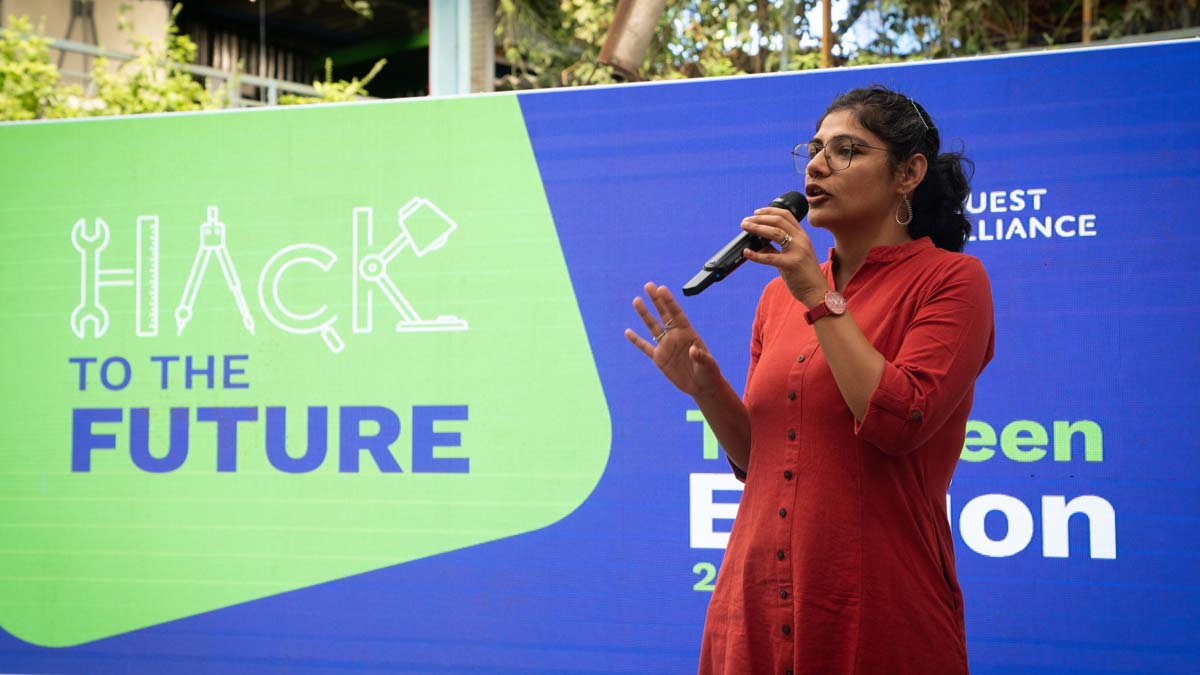A teacher remains a student forever, but in a profession that dictates the nation's future, it is imperative that they are mentored, recognised, and empowered to thrive.
The National Education Policy (NEP) (2020) has given feasible solutions by providing a framework for upskilling and encouraging shared learning among teachers. It also mandates that teachers commit 50 hours annually towards continuous professional development by participating in workshops and online modules; and use various platforms to enable digital classrooms that will equip students with future skills. To ensure NEP 2020's effective implementation, systemic challenges such as inadequate compensation and lack of recognition, which currently undermine the teaching profession, should be addressed.
The Global Report on the Status of Teachers and Teaching Profession (2021) notes that the challenges of low pay, poor working conditions, perceived respect for the profession, recognition, and messaging by media and government impact the perception of the vocation. The same research conducted in 2018 found that many teachers were overqualified for their roles. Additionally, in 79 per cent of the surveyed countries, teachers were paid less than similarly qualified professionals in other sectors, unfortunately, these abysmal conditions demotivate teachers which in turn impacts learning outcomes and classroom interaction.
In India, this situation is further exacerbated by bureaucratic delays. Every year, a serpentine queue of contractual government school teachers awaiting an increment and an appointment with the State Project Director (SPD) can be witnessed at Sarva Shiksha Abhiyan (SSA) offices. These teachers are forced to go from the cubicle of one official to another with the same request that lakhs of contractual government school teachers are making — a deserving increment, pay (at par with a permanent teacher handling the same responsibilities), and job permanence. The crux of the story remains that their requests are lost in the sea of paperwork, amidst the piles of files that move from one table to another. The teachers also complained about poorly scheduled, repetitive, and thematically disjointed training in social-emotional learning, tech classrooms, etc. without any tangible improvements in their working conditions.
In the larger context, though teachers' enrollment has increased over the last century, teacher shortage is a problem that has persisted. Addressing this problem with strategic solutions will encourage more individuals to pursue careers in the education sector that foresees huge growth as predicted in the Future of Jobs Report by the World Economic Forum.
A repeated recommendation in research papers to this global/local challenge is elevating teaching to match the status and pay of other occupations. This should begin within the education ecosystem, as suggested in the Trainer Development Strategy for the Skilling Ecosystem (TDSSE)—a framework and set of guidelines for the holistic development of 21st-century education. It highlights that "recognition is vital for fostering motivation, contributing to identity formation, and promoting career growth" among trainers. This will consequently enhance their performance and motivate them to innovate while teaching.
Timely pay, bonuses, conducive working conditions, and creative autonomy will motivate facilitators to participate in teacher training programmes, empowering them with 21st-century facilitation skills and professional growth. The Master Coach Training (MCT) programme, launched in 2022, has reached 13,355 educators across Karnataka, Odisha, Andhra Pradesh, Telangana, Gujarat, and Jharkhand.
It focuses on integrating technology into classrooms, adopting effective pedagogies, and building a STEM mindset in line with the NEP. With AI, technology, and climate change becoming central, the programme emphasises incorporating these topics into the curriculum and expanding teachers' understanding of emerging careers and technology's impact on learning.
The programme launched in areas with high child labour, drop-outs, and migration rates uses the blended training curriculum, encompassing webinars, assignments, and gamified content via WhatsApp, providing flexibility for self-paced learning. Additionally, to help teachers network, share learnings, and discuss challenges, multiple physical meetings were held over the past three years to acknowledge their efforts and connect with experts.
The positive effects of the training had trickled down to the classrooms as 44. 44 per cent of teachers were implementing insights learned from their peers. 40.47 per cent of teachers were using digital tools in classrooms to make lessons inclusive and interesting. Since the programme encouraged interest-based learning, teachers began to exercise creative autonomy to design and experiment with lessons that would resonate with their learners. Classroom rote learning was replaced by encouraging students to enquire, problem-solve, and find solutions to real-world problems.
Despite significant improvements in teacher enrolment and literacy over the past century, a persistent issue remains a lack of public awareness about the importance of teacher training and its impact on education quality. This gap in understanding has continued to undermine teaching effectiveness. To nurture and sustain students' enthusiasm for learning, it's vital that teachers receive comprehensive training in modern classroom skills, are fairly compensated, and are recognized and valued for their contributions. These steps are essential to retaining educators in a profession that shapes the future workforce.
Neha Parti is the director (Schools Program) at Quest Alliance, a non-profit organisation which works in the skilling and education sector.



